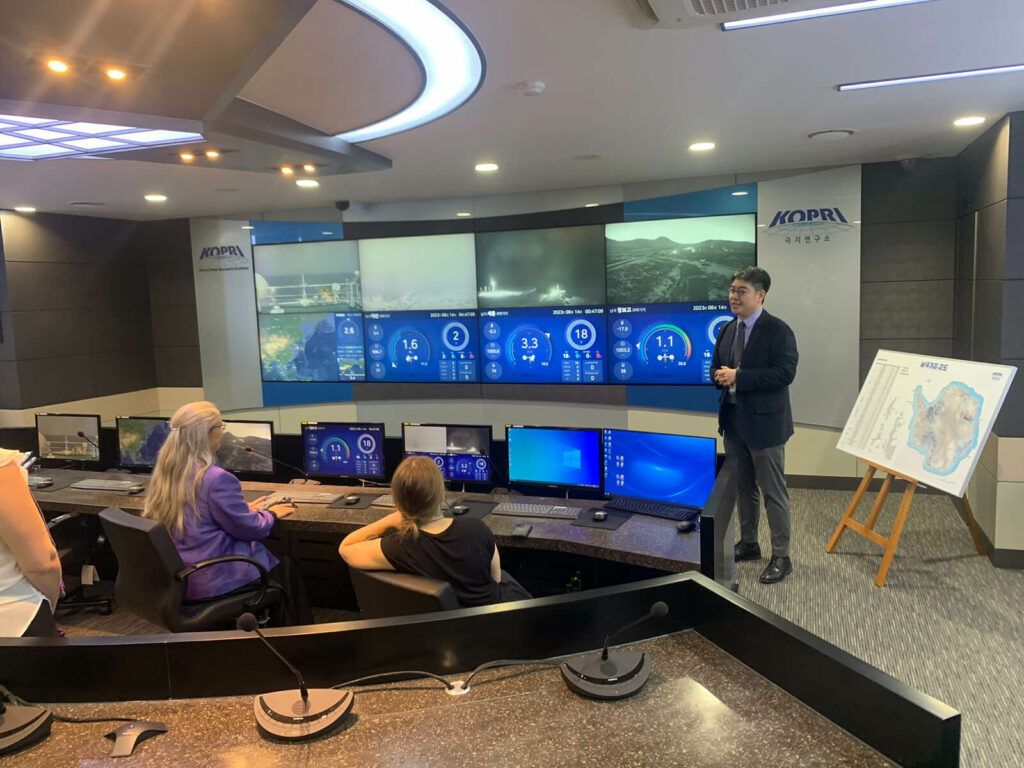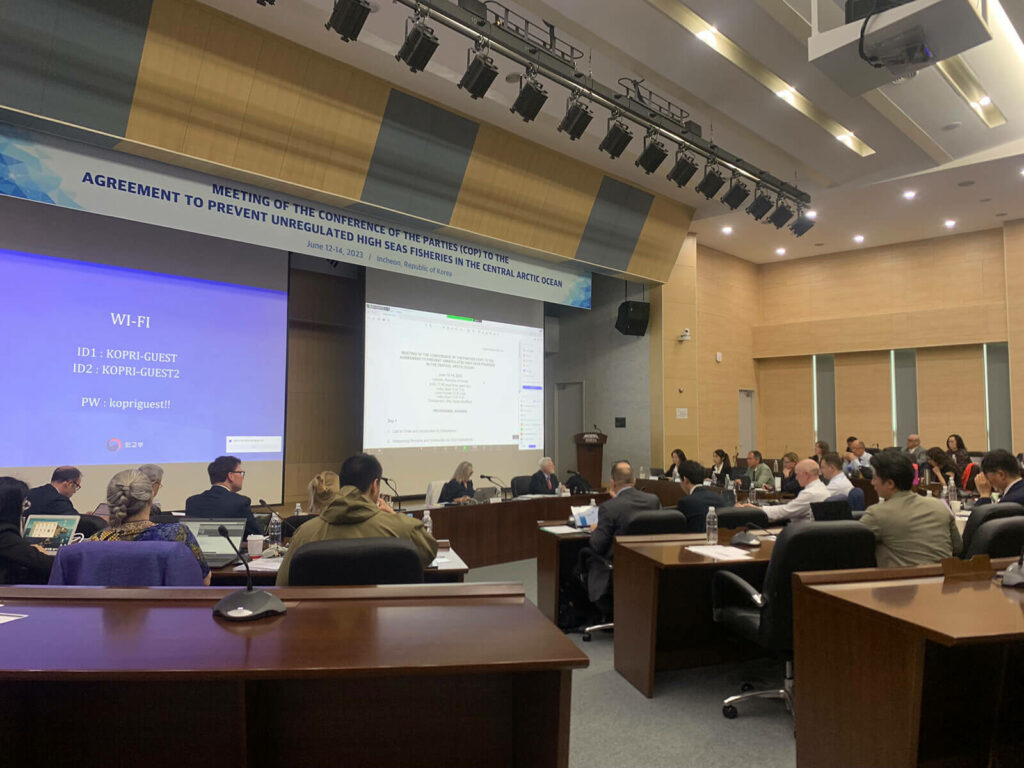WWF’s Jan Dusík and Chelsea Boaler at the second CAOFA meeting. Photo: © WWF Arctic Programme
News
Promising outcomes from the recent CAO Fisheries Agreement meeting
- Central Arctic Ocean Fishing Agreement
- Governance
- Pan-Arctic
The Arctic Ocean is undergoing a dramatic transformation as melting sea ice and anticipated increased industrial development pose significant threats. This unique and vulnerable region plays a crucial role in supporting marine life while also supporting the livelihoods of Arctic communities. Recognizing the urgency, the Central Arctic Ocean Fisheries Agreement (CAOFA) came into effect in June 2021, representing a vital milestone in the conservation of the Central Arctic Ocean (CAO) ecosystems.
To ensure the long-term sustainability of the region, CAOFA enacted a groundbreaking 16-year ban on commercial fishing in the CAO. This proactive and precautionary measure provides us with a valuable opportunity to deepen our understanding of the region’s biodiversity and fisheries potential. By adopting a precautionary approach and making informed decisions, parties to CAOFA can establish a foundation for responsible fishing exploration in the future, learning from past mistakes of overfishing as well as best practices in other parts of the world.
WWF’s contributions and recommendations
WWF played a pivotal role as a CAOFA Observer during the second Conference of the Parties (COP) meeting held in Incheon, Republic of Korea from 12-14 June 2023. WWF developed recommendations to inform the effective implementation of CAOFA and presented its report “Sustaining Tomorrow’s Central Arctic Ocean Today.” The report draws upon successful practices and lessons learned globally to promote effective governance of Arctic fisheries.
WWF received appreciation and positive feedback from multiple Parties for its inputs to COP discussion – highlighting the need to tackle the intertwined biodiversity and climate crises and advocating for establishing linkages with global biodiversity instruments, such as the Biodiversity Beyond National Jurisdiction (BBNJ) Agreement and the Global Biodiversity Framework (GBF). Furthermore, WWF emphasized the importance of following best practices in fisheries management (both commercial and exploratory) that consider the impacts of climate change in the Arctic.
WWF actively contributed to the formulation of the United States’ proposed “Resolution on Climate Change,” recognizing the significance of incorporating the latest climate science and knowledge into decision-making processes of the Agreement.
“We are pleased that the draft Resolution was widely supported by Parties and a text was agreed, but we regret that not everyone was prepared to adopt this resolution. We call on all Parties to ensure the Resolution’s formal adoption as quickly as possible – climate change in the Arctic advances fast and will not wait until the next COP.” – Jan Dusik, Lead Specialist, Governance, WWF Global Arctic Programme

© Jan Dusík / WWF Arctic Programme
The need to integrate science and Indigenous Knowledge
The COP defined priorities among scientific and Indigenous Knowledge questions that should inform the authorisation of exploratory fishing. To facilitate this process, a working group was established to provide responses to these questions, aiding the development of key policy documents at the next COP. Another working group was set up to draft Conservation and Management Measures (CMMs) for exploratory fishing, where WWF plans to promote best practices based on previous analysis of fisheries arrangements worldwide.
“We encourage the Parties to keep the precautionary principle at the forefront of their discussions as they work towards a draft text of CMMs. We hope to see the responses to the scientific and Indigenous Knowledge questions feed directly into these conservation and management measures, while considering our proposed best practices from elsewhere, as submitted to the COP.” – Chelsea Boaler, Senior Specialist, Wildlife and Industry, WWF-Canada
According to the newly adopted Rules of Procedure, all Observers, including WWF, are welcome to engage in discussions at the COP and its subsidiary bodies. WWF plans to actively participate in reviewing, developing, and applying available science, Indigenous Knowledge, and local knowledge regarding fishing and ecosystems in the Arctic Ocean. WWF will also provide input for the implementation plan of the Joint Programme of Scientific Research and Monitoring. These policy documents will be considered at the next COP in June 2024.

© Jan Dusík / WWF Arctic Programme
Looking ahead
The second COP focused mainly on establishing rules and subsidiary bodies of the Agreement. The forthcoming COP in June 2024 aims to complement these processes with substantive outcomes that should guide the remaining duration of the moratorium. The objective is to fill knowledge gaps and ensure that potential exploratory fishing aligns with the conservation needs of the Central Arctic Ocean’s marine ecosystems.
WWF commends the cooperative spirit and progress achieved by the Parties in implementing the Agreement. This accomplishment is particularly noteworthy given the current political challenges of global cooperation in the Arctic.
By WWF Global Arctic Programme